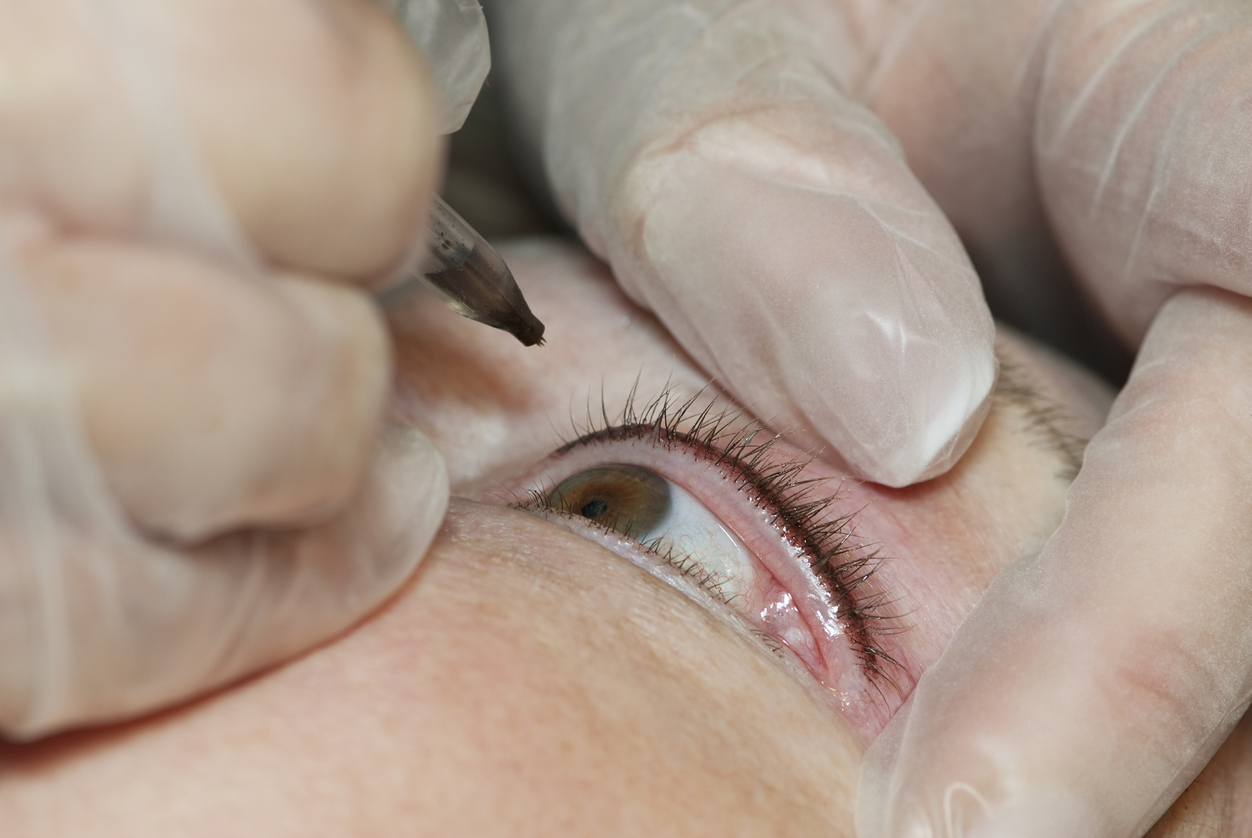Understanding the Risks Associated with Eye Tattoos
Introduction
Eye tattoos, also known as scleral tattoos or eyeball tattoos, have gained popularity in recent years as a form of body modification. While some individuals may find them visually striking or unique, it’s essential to understand the potential dangers and risks associated with this procedure. In this article, we’ll explore what eye tattoos are, the potential complications they can cause, and why experts advise against undergoing this risky procedure.
What are Eye Tattoos?
Eye tattoos, also known as scleral tattoos or eyeball tattoos, involve the injection of ink or pigment directly into the sclera, which is the white part of the eye. Unlike traditional skin tattoos that involve injecting ink into the dermis layer of the skin, eye tattoos penetrate the delicate tissues of the eye itself. The procedure is typically performed by non-medical professionals, often in unregulated or unsanitary environments. Various colors of ink may be used to achieve different effects, ranging from solid colors to intricate designs.
The process of eye tattooing usually involves the use of a needle or syringe to inject the ink into the sclera. The injected ink disperses throughout the scleral tissue, resulting in a permanent change in the appearance of the eye. Some individuals may choose to have only a portion of the sclera tattooed, while others opt for a more dramatic full-eye tattoo.
Potential Complications
Eye tattoos pose a range of potential complications, many of which can have serious consequences for vision and overall eye health. Some of the most significant risks include:
- Vision Loss: Injecting ink into the delicate tissues of the eye can damage critical structures such as the cornea, iris, or retina, leading to partial or complete vision loss. The risk of vision impairment is particularly high if the needle penetrates too deeply or if the ink spreads beyond the intended area.
- Infection: Eye tattooing carries a high risk of infection due to the introduction of foreign substances into the eye. Bacteria, viruses, or fungi present on the needle or in the ink can cause severe infections, such as endophthalmitis, which can lead to permanent vision loss if left untreated.
- Inflammation: The body’s immune response to the injected ink can trigger inflammation and swelling in the eye. This can cause discomfort, pain, redness, and blurred vision, making it challenging to perform daily activities.
- Allergic Reactions: Some individuals may experience allergic reactions to the ink or other materials used during the tattooing process. Allergic responses can range from mild irritation to severe systemic reactions, including anaphylaxis, which requires immediate medical attention.
- Corneal Abrasion: The process of injecting ink into the sclera can cause corneal abrasions or scratches, increasing the risk of infection and other complications. Corneal injuries can be painful and may lead to long-term vision problems if not properly treated.
Why Experts Advise Against Eye Tattoos
Ophthalmologists and medical professionals strongly advise against eye tattoos due to the significant risks involved and the potential for irreversible harm to vision. Unlike traditional skin tattoos, which are relatively safe when performed by trained professionals in sterile environments, eye tattoos carry a much higher risk of complications due to the delicate nature of the eye.
Furthermore, the long-term effects of eye tattoos are not well understood, and there is a lack of scientific evidence supporting their safety or efficacy. Given the potential for severe complications, undergoing this procedure is considered unnecessary and irresponsible by medical experts.
Conclusion
While eye tattoos may seem like a bold form of self-expression, the risks far outweigh any perceived aesthetic benefits. Vision is precious and irreplaceable, and jeopardizing it for the sake of a cosmetic procedure is not worth the potential consequences. It’s crucial to prioritize eye health and safety above all else and avoid engaging in risky practices such as eye tattoos. If you’re considering any form of body modification, consult with a qualified medical professional to explore safer alternatives that won’t compromise your health or vision.
World Eye Care Foundation’s eyecare.live brings you the latest information from various industry sources and experts in eye health and vision care. Please consult with your eye care provider for more general information and specific eye conditions. We do not provide any medical advice, suggestions or recommendations in any health conditions.
Commonly Asked Questions
If you experience any pain, vision changes, or other complications after getting an eye tattoo, seek immediate medical attention from an ophthalmologist or healthcare professional.
Eye tattoos are extremely difficult to remove, and attempts to do so can result in further damage to the eye and vision.
The long-term effects of eye tattoos are not well studied, but they can potentially lead to chronic eye problems and vision issues.
Performing eye tattoos without proper medical training or license may be illegal in some jurisdictions and can result in severe penalties.
Most reputable tattoo artists and ophthalmologists will refuse to perform eye tattoos due to the high risk of complications.
Yes, there are many safer alternatives to eye tattoos, such as temporary eye makeup or colored contact lenses.
Healing time for eye tattoos can vary, but it typically takes several weeks for the eyes to fully recover from the procedure.
Yes, eye tattoos carry a risk of vision loss due to potential complications such as infection, inflammation, and corneal damage.
Eye tattoos can be extremely painful due to the sensitivity of the eye and the invasive nature of the procedure.
Yes, eye tattoos are considered permanent as the ink is injected directly into the sclera, where it can remain for a lifetime.
news via inbox
Subscribe here to get latest updates !








